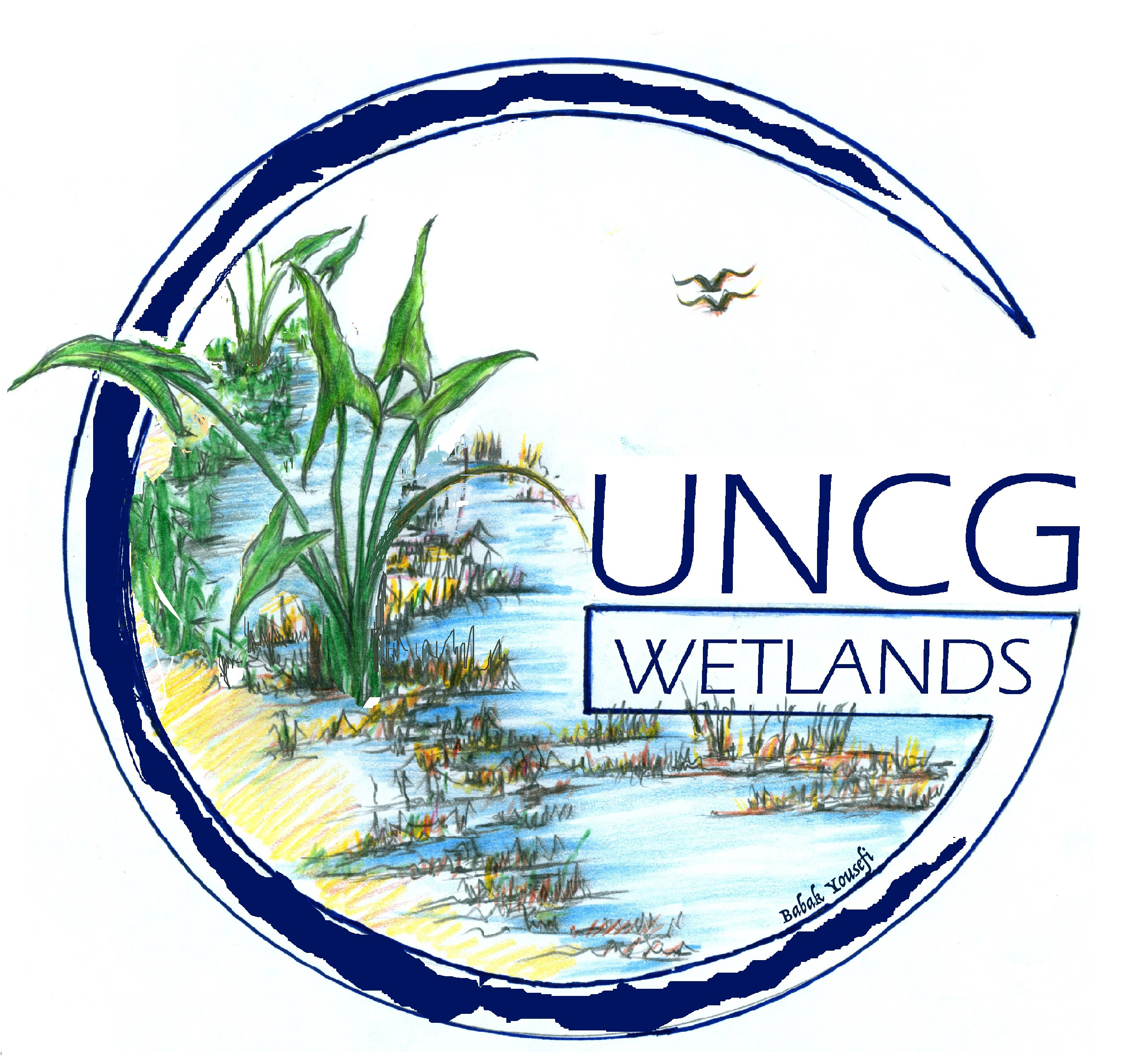About
The Beginning of the UNCG Wetlands
In October 2014, the RISE Network hosted John Byrd, a science education professional, who presented a 2-day workshop on incorporating inquiry based learning into STEM curricula. Among other topics he introduced the idea of creating wetlands on campus for this purpose. The Wetlands Committee arose in 2015 as an ad hoc committee under the aegis of the RISE Network to promote and expand this concept for UNCG. In 2016 the Committee secured funding from the Provost to construct two campus wetlands in 2017.
The Wetlands Committee grew, adding new members from various university departments and partnership organizations including the City of Greensboro, Greensboro Science Center and the Audubon Society. In March, 2017 with the help of Duke Energy Water Resources and UNCG Green Fund grants we brought an internationally renowned wetlands restoration/construction expert to UNCG, conduct workshops, and restore two wetlands in Peabody Park on our main campus. Construction involved more than 100 UNCG students, faculty, staff and community members. The ongoing care of the wetlands are being integrated into courses and research in the science disciplines.
Background about North Carolina Wetlands
Historically, North Carolina was replete with wetlands. As land was developed for farming during the 1800-early 1900s, the wetlands were drained using ditches and clay tiles. Today only a small fraction of wetlands remain. Fortunately, wetlands can be constructed to look and function like natural wetlands, providing waste water treatment and natural habitats for plant and animal species, some of which have been decimated (Biebighauser, 2011). Even small wetlands are valuable because the majority of wetlands that were historically drained were < 1 acre (Biebighauser 2007, Dhal 2006).
Wetlands can be simple shallow areas of water in which vegetation and animals thrive. Microorganisms naturally detoxify waste water, and when populated by amphibians, aquatic insects, and fish, serve as a sink to attract mosquitoes whose larvae are eaten, thus acting as a natural mechanism for reducing mosquito populations. They harbor native plants, adding beauty to urban landscapes. In Greensboro, an example of a larger wetland area is the Bog Garden on Hobbs Road.
Mission
The mission of the Wetlands Committee is to promote the construction of campus wetlands suitable for aesthetic, ecological, educational, and research purposes.
Goals
- Develop wetlands to improve water quality of runoff delivered to receiving streams.
- Develop wetlands to increase biotic diversity with native wetland plants, followed by the succession of microorganism and animal populations.
- Develop wetlands to provide educational opportunities for undergraduate and graduate students across disciplines.
- Develop wetlands to provide research opportunities for students and faculty across disciplines and colleges.
- Develop wetlands to create a living laboratory for outreach in K-12 education projects, and community relation events.
- Develop wetlands to enhance the beauty of our Campus landscape.
Justification
The wetlands construction project is consistent with the UNCG strategic plan. Wetlands promote environmental health and increase our curiosity about a natural environment in North Carolina. They serve as a model for environmental health to our community and provide a means for education and research on aquatic environments as our global climate patterns change. As a campus that prides itself on its beauty, commitment to sustainability, and education on environmental issues, UNCG is situated to construct small wetland habitats for environmental, educational, and research purposes.
Wetlands have multiple benefits to UNCG and the community. Wetland ecology and water chemistry will be integrated into teaching and learning experiences in sciences and education, inspiring our next generation of conservationists. Environmental and nature studies will be integrated into many other departments, including Environmental Studies and English. As an outdoor living learning laboratory, the wetlands will also be a resource for K-12 education and community. Wetlands are beautiful and demonstrate UNCG’s commitment to environmental preservation and sustainability.






